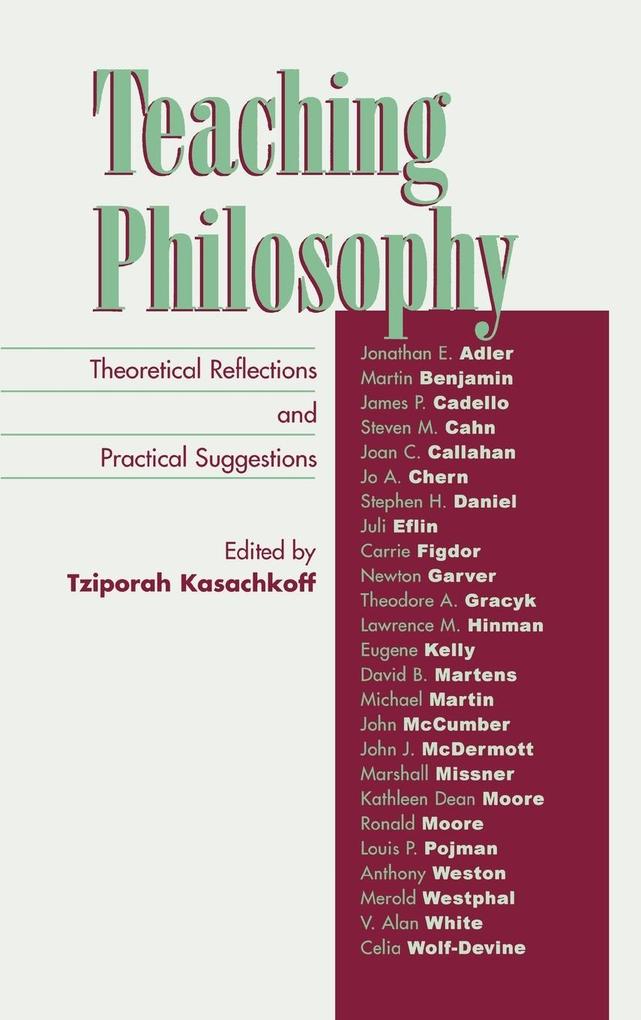Here, two dozen distinguished philosophers share their insights and practical suggestions on a diverse range of pedagogic issues with essays on how to motivate students, constructing syllabi for particular courses, teaching particularly complex concepts, and constructing creative examinations.
Inhaltsverzeichnis
Part 1 I Introducing Students to Philosophy
Chapter 2 Teaching Introductory Philosophy
Chapter 3 Introducing Philosophy
Chapter 4 Teaching Introductory Philosophy: A Restricted Topical Approach
Part 5 II Helping Our Students Improve
Chapter 6 How to Improve Your Teaching
Chapter 7 Reading and Interpretation: A Heuristic for Improving Students' Comprehension of Philosophy Texts
Chapter 8 Improving Student Papers in 'Introduction to Philosophy' Courses
Chapter 9 Using Essay Exams to Teach and Not Merely to Assess
Part 10 III Teaching Applied Ethics
Chapter 11 From the "Applied" to the Practical: Teaching Ethics for Use
Chapter 12 A Social Dilemma Game for an Ethics Class
Part 13 IV Teaching Philosophy with Computers
Chapter 14 Teaching With a Screen
Part 15 V Teaching Aesthetics
Chapter 16 The Case Method Approach to the Teaching of Aesthetics
Part 17 VI Teaching Philosophy of Religion
Chapter 18 Teaching Philosophy of Religion (either as a full course or as part of an 'Introduction to Philosophy')
Chapter 19 Three Courses in Philosophy of Religion
Part 20 VII Teaching Critical Thinking
Chapter 21 Using Pseudoscience in a Critical Thinking Class
Chapter 22 A Critical Thinking Portfolio
Part 23 VIII Teaching Philosophy Through History
Chapter 24 The Teaching of Philosophy-Historically
Part 25 IX Teaching Kant/Teaching Hegel
Chapter 26 A User-Friendly Copernican Revolution
Chapter 27 Charting Kant
Chapter 28 On Teaching Hegel: Problems and Possibilities
Chapter 29 Hegel and Family Values
Part 30 X Teaching Existentialism/Teaching Continental Philosophy
Chapter 31 Teaching Existentialism
Chapter 32 Teaching Recent Continental Philosophy
Part 33 XI Teaching Philosophical Explanation
Chapter 34 Teaching 'Inference to the Best Philosophical Explanation'
Part 35 XII Teaching Philosophy of Gender
Chapter 36 Teaching Gender Issues-Philosophically
Part 37 XIII Looking at What We Do in the Classroom
Chapter 38 Uncovering the "Hidden Curriculum": A Laboratory Course in Philosophy of Education
Chapter 39 A Graduate Seminar on Teaching Philosophy
Part 40 About the Contributors
Part 41 About the Editor
